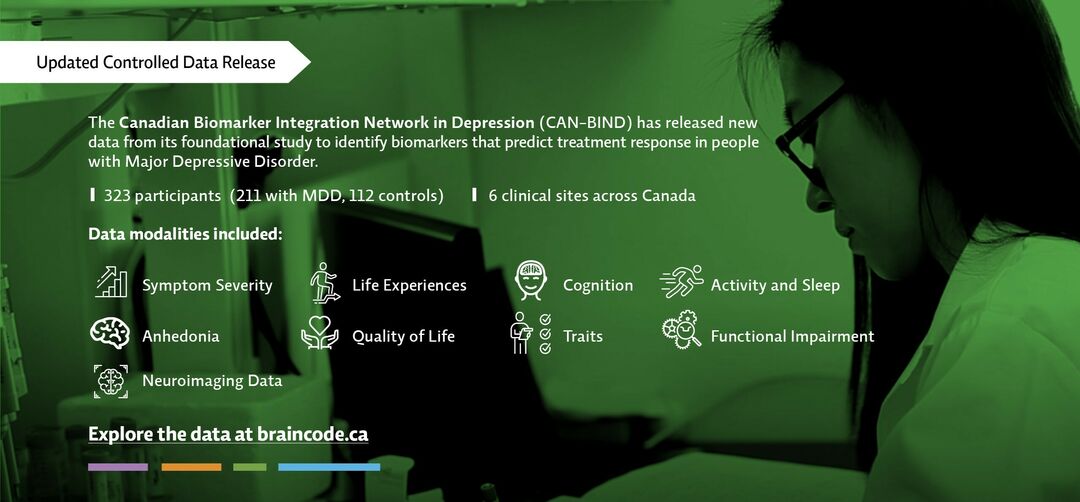New data sheds light on depression treatment responses

23 mars 2023
The Canadian Biomarker Integration Network in Depression (CAN-BIND), an Integrated Discovery Program of the Ontario Brain Institute, has released new data from its foundational study to identify biomarkers that predict treatment response in people with depression.
The CAN-BIND study features a deeply phenotyped cohort of 211 people with Major Depressive Disorder (MDD) and 112 healthy individuals across six Canadian clinical sites.
The updated dataset, now available on Brain-CODE, now includes longitudinal data from participant follow-up visits in weeks 2 to 8 of the study (Phase 1). It also includes new clinical assessments and neuroimaging data. All data have been standardized, cleaned and curated to maximize utility for analysis across different data modalities, and imaging data was converted to a BIDS-friendly naming convention.
Data modalities include:
- Neuroimaging Data
- Symptom Severity
- Life Experiences
- Cognition
- Activity and Sleep
- Anhedonia
- Quality of Life
- Traits
- Functional Impairment
During the foundational study, participants with MDD received escitalopram, an antidepressant, for eight weeks. After eight weeks, if depressive symptoms did not improve, participants then received escitalopram in combination with aripiprazole, an augmentation treatment often used to treat MDD, for a further eight weeks. Throughout the study, participants were assessed with 29 clinical instruments and questionnaires, structural and functional MRI, resting state and task-based EEG, and genomic and molecular measures. The aim of the study is to identify biomarkers that predict treatment response in people with depression.
All data included in the baseline release will still be available in this updated version. Data from participant follow-up visits in weeks 10 to 16 of the study (Phase 2) is coming soon.
